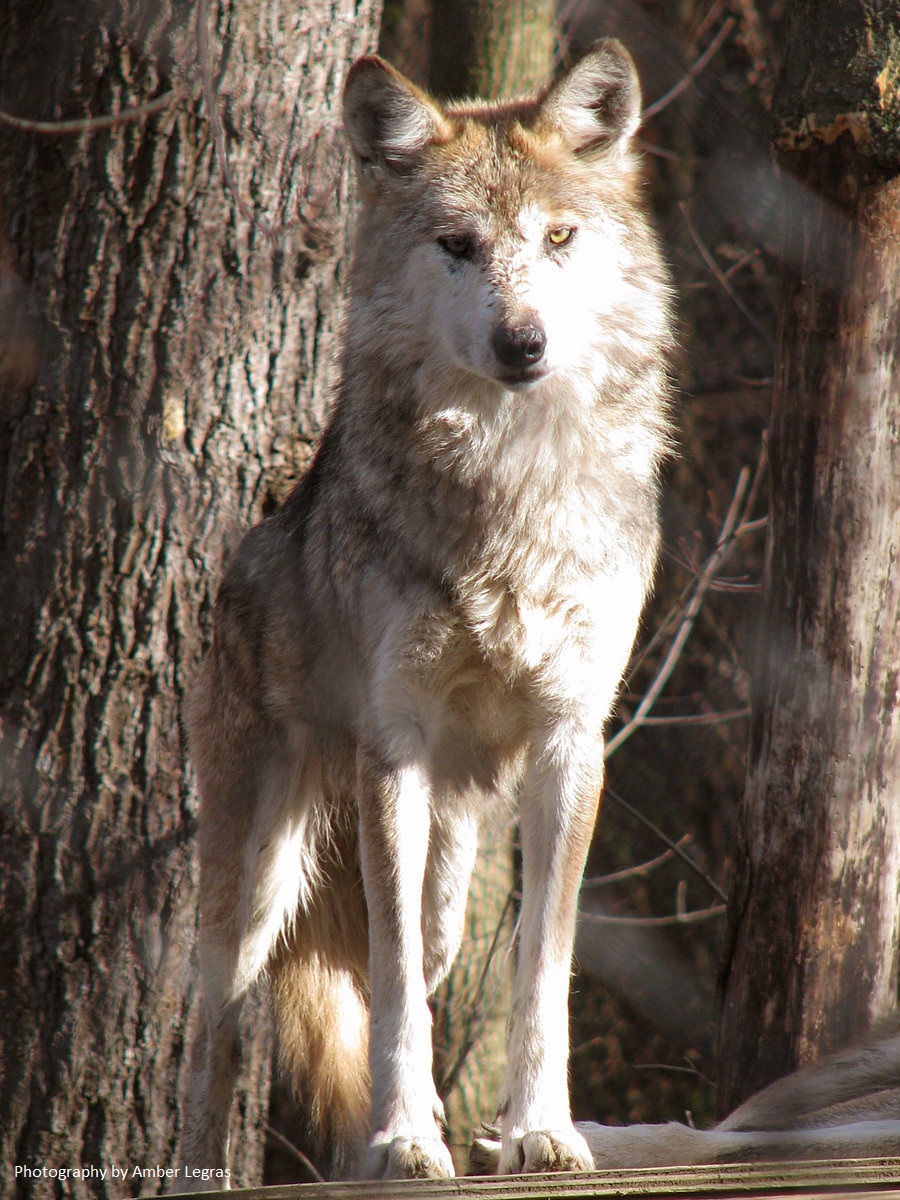Important Policy News from the Society for Conservation Biology:
 This important post comes from the Society for Conservation Biology website. Information on how you can help move Mexican wolf recovery forward is at the end.
This important post comes from the Society for Conservation Biology website. Information on how you can help move Mexican wolf recovery forward is at the end.
On June 20th, the American Society of Mammalogists, the Society for Conservation Biology, and the Society for Ecological Restoration sent a letter to the U.S. Fish and Wildlife Service (FWS) offering their scientific expertise to conduct an expedited peer review on a draft set of recovery criteria for the highly-endangered Mexican wolf (Canis lupus baileyi). Efforts to develop a science-based recovery plan for the species appear to have reached an impasse. In addition, Public Employees for Environmental Responsibility (PEER), a whistleblower organization, has filed a complaint as provided in the Interior Department’s relatively new Scientific Integrity Policy, asserting that certain FWS and State agency personnel of Utah and Arizona appear to be undermining efforts to include these science-based recovery criteria in the revised recovery plan. Given the precarious conservation status of the Mexican wolf, and the fact that recovery efforts are still being guided by a plan from 1982, the three scientific societies have offered their assistance in order to move recovery planning forward for the species. The letter also urges the FWS to immediately resume the recovery planning process for the Mexican wolf, which has, in effect, been suspended recently by the FWS, and is now over a year behind schedule.
The Mexican wolves represent one of the most distinct genetic lineages of wolves in the Western Hemisphere, and are thought to be the only surviving descendants of the first wave of gray wolves to colonize North America during the Pleistocene Epoch. A single experimental population was reintroduced to the Blue Range of Arizona and New Mexico beginning in 1998. Despite predictions that this experimental population would grow to over 100 individuals by 2006, today there are only 58 individuals living in the wild. Due to its very small founding stock, each year that the captive and wild Mexican wolf populations remain at low population levels brings greater risk that the effects of genetic inbreeding will cause irreparable harm to this species.
In 2011, the FWS assembled a group of scientists to help develop a recovery plan and as part of that to develop delisting, or recovery, goals based on the best available science for a revised recovery plan for the Mexican wolf, and this group completed a draft recovery plan in May 2012. Unfortunately, it appears that in deference to political or other concerns, higher level officials may be blocking the full recovery team from considering the goals recommended by the scientific subcommittee of the recovery team. Now, it appears that consideration of the entire draft plan may either be delayed or blocked. A science-based recovery plan has the potential to reduce conflict over the long-term by minimizing litigation, minimizing resources needed by FWS for defending its actions, and speeding the eventual delisting of the Mexican wolf. The three societies have the capacity to expeditiously review the recovery plan to see if it sufficiently address the continuing loss of genetic health due to inbreeding, ensures long-term resiliency in wolf populations given expected habitat changes in the Southwest due to climate change, and meets the other criteria of the Act. A peer review could resolve this impasse in a transparent manner and allow Mexican wolf recovery to proceed.
*******************************************************************************************************************************************
 Please join these scientific societies in calling on US Fish and Wildlife Service Director Dan Ashe and NM Senators Tom Udall and Jeff Bingaman to ensure development of a science based recovery plan for the Mexican gray wolf.
Please join these scientific societies in calling on US Fish and Wildlife Service Director Dan Ashe and NM Senators Tom Udall and Jeff Bingaman to ensure development of a science based recovery plan for the Mexican gray wolf.
Some talking points for your letter are below-remember that it will be most effective written in your own words, from your own experience.
- A new, science-based recovery plan to replace the outdated 1982 plan is way overdue; the US Fish and Wildlife Service should be doing all in its power to expedite release of a draft plan based on the work of the scientific subcommittee.
- Consistent with the Interior Department’s Scientific Integrity Policy, a thorough investigation of political interference with the scientific recovery planning process should be made immediately in response to the complaint by Public Employees for Environmental Responsibility.
- Obstruction by anti-wolf special interests and politics has kept this small population of unique and critically endangered wolves at the brink of extinction for too long and can no longer be allowed to do so.
- Development of a new recovery plan that will address decreased genetic health and ensure long-term resiliency in Mexican wolf populations must move forward without delay.
- The majority of New Mexico and Arizona voters support the Mexican wolf reintroduction. Polling showed 69% support in New Mexico and 77% support in Arizona.
- Wolves bring tremendous ecological benefits to entire ecosystems and all wildlife. Wildlife biologists believe that Mexican wolves will improve the overall health of the Southwest and its rivers and streams — just as the return of gray wolves to Yellowstone has helped restore balance to its lands and waters.
- You can make your letter more compelling by talking about your personal connection to wolves and why the issue is important to you. If you’re a camper or hiker wanting to hear wolves in the wild, or a hunter who recognizes that wolves make game herds healthier, or a businessperson who knows that wolves have brought millions in ecotourism dollars to Yellowstone, say so.
Please email your letter to US Fish and Wildlife Service Director Dan Ashe and send a copy to NM Senators Udall and Bingaman. Include your full name, address, and phone number.
Please send us a copy at info@mexicanwolves.org as well to help us track actions being taken for the wolves.
Thank you for taking the time to write a letter on behalf of these important animals who cannot speak for themselves.
Photos:
Top: Captive Mexican gray wolf photo courtesy of AZ Game and Fish Department
Bottom: Captive Mexican gray wolf photo courtesy of Amber Legras



